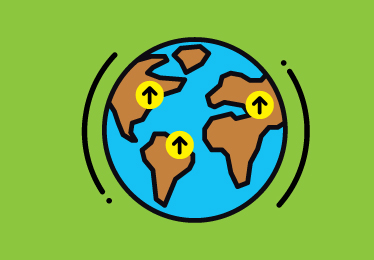Almost a decade ago, the big debate among emerging market ETF investors was whether or not to own South Korea, as index providers disagreed on how to classify that economy. That once-heated debate all but lost steam in recent years … until now.
South Korea, the latest country to face a massive outbreak of coronavirus, was at the center of news that cratered global markets this week. The Korea Stock Exchange, KOSPI, now down almost 3.5% year to date, is faced with uncertainty centered on how this outbreak will impact the economy at large.
Who Is In Your Index?
To emerging market ETF investors, the latest turn of events is a good reminder that when it comes to accessing this risky universe of equities, country allocation decisions can have a material impact on your performance.
When big index providers took different stances on South Korea—some calling it emerging, some calling it developed—the result was a sizable disparity in exposure among the biggest ETFs in the segment.
The giant emerging market ETFs iShares MSCI Emerging Markets ETF (EEM) and iShares Core MSCI Emerging Markets ETF (IEMG) own South Korea as an emerging market thanks to MSCI’s classification. The Vanguard FTSE Emerging Markets ETF (VWO) and the Schwab Emerging Markets Equity ETF (SCHE) do not, due to FTSE classifying the country as a developed economy.
The Korean Factor
That means that today, South Korea is the third largest country allocation in EEM and IEMG, representing more than 11% of these respective portfolios, which command some $90 billion in combined assets. South Korea is clearly a significant driver of performance for these funds. Companies like Samsung and SK Hynix Inc. are among some of the biggest holdings.
VWO and SCHE, meanwhile, exclude South Korea altogether. These funds, which together boast more than $71 billion in total assets, assign more weight to India and China instead.
Year to date, the performance of the two original EM giants, EEM vs. VWO, shows that these under-the-hood differences ultimately impact results:

Other Differences
The disparity between the two funds probably extends beyond their allocation difference to South Korea. Consider that Hong Kong-listed stocks—using the iShares China Large-Cap ETF (FXI) as an ETF proxy—are down almost 7% year to date.
The Brazilian stock market, as measured by the iShares MSCI Brazil ETF (EWZ), is down 15% in the same period. Indian stocks, as measured by the iShares MSCI India ETF (INDA), are down 3%. VWO carries slightly more weight to these countries.
To emerging market ETF investors, accustomed to risk and volatility in an equity segment known for wild rides, none of this is news. And yet it’s a reminder that country classifications and allocations matter—sometimes more than others.
With 215 different emerging market ETFs to choose from today, the inclusion or exclusion of South Korea is an important first step, but only the start of a due diligence process that ultimately ensures that the ETF you choose doesn’t take you on a ride you didn’t want or expect.
Contact Cinthia Murphy at [email protected]

